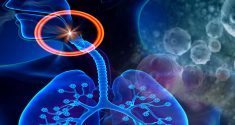Studies in chronobiology suggest that short sleep duration is a carcinogen. New research indicates that prostate cancer risk may be especially impacted.
The World Health Organization and other major medical associations have long considered disruptions to the circadian rhythm a carcinogen—or cause—of cancer. Several different types of cancer have been linked to shift work, insomnia, short sleep duration and other causes of poor sleep. New circadian biology research suggests that prostate cancer may be yet another cancer with a link to sleep.
How Does Sleep Deprivation Cause Cancer?
Sleep is not just a period of rest, but a period of intense DNA repair. Hormones associated with sleep, especially melatonin, actually trigger repair of the daily damage done to our genes in routine cell processes. When this repair does not occur, or does not occur as efficiently, cell mutations may accumulate and ultimately lead to cancer.
Sleep disorders such as insomnia are often tied to disorders in melatonin production. In addition, shift workers are exposed to light at night and thus produce less melatonin. These effects add up to a potential public health hazard, as 15 percent of workers in the United States work odd shifts while 30 percent have experienced insomnia in the last year.
Prostate Cancer and Sleep Duration
Prostate cancer is one of the most common cancers in men, with over 13 percent of men experiencing it in their lifetime. As with all cancers, prevention is as important as discovering new treatments and a cure.
When researchers looked at the sleeping habits of populations of men who had prostate cancer, a trend emerged. The risk of prostate cancer correlates with short sleep duration. This is especially true of men who had late-stage prostate cancer. The connection may be due to a lack of melatonin in men who suffer an inability to stay asleep. In addition, men who work long and irregular shifts, such as airline pilots, develop prostate cancer at higher rates. Another study found that genes involved in regulating the circadian rhythm are involved in fighting prostate cancer, as men who had mutations in these genes were more likely to develop the disease in their lifetime.
Implications for Prostate Health

Most of us feel healthier after a good night’s sleep: more energetic, more alert and more prepared to face the challenges of the day. New research is regularly showing how important the circadian rhythm is to our emotional, physical and cellular health.







